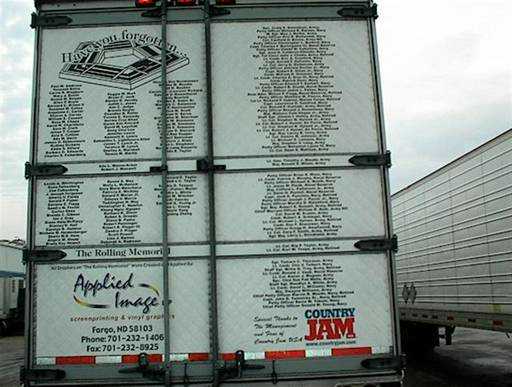The trucker’s name is John Holmgren from Shafer , Minn. He has been ‘pulled over’ numerous times just so the troopers can get their picture taken with the truck.


Lieutenant Governor of South Carolina
by Kevin Bryant
The trucker’s name is John Holmgren from Shafer , Minn. He has been ‘pulled over’ numerous times just so the troopers can get their picture taken with the truck.


by Kevin Bryant
Posted by Daniel J. Mitchell
John Podesta of the Center for American Progress had a column in Politico yesterday asserting that “closing the budget gap entirely on the spending side would require draconian programmatic cuts.” He went on to complain that there are some people who “refuse to look at the revenue side of the ledger – while insisting that we dig the hole $830 billion deeper over the next decade by extending the Bush tax cuts.”
Not surprisingly, Mr. Podesta is totally wrong. It’s actually not that challenging to balance the budget. And it doesn’t even require any spending cuts, though it would be a very good idea to dramatically downsize the federal government. Here’s a chart showing this year’s spending and revenue totals. It then shows the Congressional Budget Office’s estimate of how much revenues will grow, assuming all the 2001 and 2003 tax cuts are made permanent and assuming that the alternative minimum tax is adjusted for inflation. As you can see, balancing the budget is a simple matter of limiting the annual growth of federal spending.

So how is it that Mr. Podesta can spout sky-is-falling rhetoric about “draconian” cuts when all that’s needed is fiscal restraint? The answer is that politicians in Washington have concocted a self-serving budget process that automatically assumes that all previously-planned spending increases should occur. So if the politicians put us on a path to make government 8 percent bigger next year and there is a proposal to instead limit spending growth to 3 percent, that 3 percent increase gets portrayed as a 5 percent cut. read on
by Kevin Bryant
Please pray for our daughter Morgan. She’s been diagnosed with complex cystic masses on the right side of her thyroid. After several consultations, we’ve agreed to surgery to remove the right side of her thyroid next week.
Although cancer would be extremely rare, they will test the tissue and remove all of her thyroid if the tests show any possibility.
We’re told that the surgery requires an overnight stay in the hospital and recovery is tolerable.
by Kevin Bryant
Recently, I’ve received several e-mails with questions about reforming how the Legislature operates. Here’s my answers:
Senate:
1. South Carolina’s legislative session is the longest in the Southeast and the longest in the United States among part-time legislatures.
• Would you support shortening the legislative session to no more than 45 legislative days? yes
2. Because so much power is concentrated in the legislative branch, the leadership is therefore powerful through appointments to 250-plus executive branch boards and commissions. The Speaker of the House and the Senate President Pro Tempore, alone, make more than 120 appointments to executive branch functions.
• Do you believe there is an equal balance of power between the legislative, executive and judicial branches of SC state government? no
• If yes: Given that judges are appointed by the legislature, and many executive branch appointments are made by the legislature, how can you support that statement?
• If no: How would you propose changing the current system? Move more executive functions under the governor’s administration, have judges appointed by governor and confirmed by Senate, eliminate the Budget and Control Board
3. Given that we are one of only two states that determines committee chairman and committee assignments simply based on how long someone has been in the Senate;
• Would you support a rules change in the Senate to reform the seniority system? If it accompanied term limits. I support term limits on the full membership.
4. For the past two years the General Assembly has only recorded 25% of votes they took.
• Do you believe a statute requiring more recorded votes is unconstitutional? No, However, I support legislation (statute), constitutional amendment, rules change, or all of the above to increase roll call votes. Personally, I record all of my votes in the Senate Journal on 2nd or 3rd reading of all bills voluntarily if no role call vote is taken
• Would you support a Constitutional amendment requiring recorded votes? yes
by Kevin Bryant
‘Naked scanners’: Lobbyists join the war on terror
By: Timothy P. Carney, Senior Columnist, Washington Examiner
The degradations of passing through full-body scanners that provide naked pictures of you to Transportation Security Administration agents may not mean that the terrorists have won — but they do mark victories for a few politically connected high-tech companies and their revolving-door lobbyists.
Many experts and critics suspect that the full-body “naked scanners” recently deployed at U.S. airports do little to make us more secure, and a lot to make us angry, embarrassed and late. For instance, the scanners can’t see through skin, and so weapons or explosives can be hidden safely in body cavities.
But this is government we’re talking about. A program or product doesn’t need to be effective, it only needs to have a good lobby. And the naked-scanner lobby is small but well-connected.
If you’ve seen one of these scanners at an airport, there’s a good chance it was made by L-3 Communications, a major contractor with the Department of Homeland Security. L-3 employs three different lobbying firms including Park Strategies, where former Sen. Al D’Amato, R-N.Y., plumps on the company’s behalf. Back in 1989, President George H.W. Bush appointed D’Amato to the President’s Commission on Aviation Security and Terrorism following the bombing of Pan Am Flight 103. Also on Park’s L-3 account is former Appropriations staffer Kraig Siracuse.
The scanner contract, issued four days after the Christmas Day bomb attempt last year, is worth $165 million to L-3.
Rapiscan got the other naked-scanner contract from the TSA, worth $173 million. Rapiscan’s lobbyists include Susan Carr, a former senior legislative aide to Rep. David Price, D-N.C., chairman of the Homeland Security Subcommittee. When Defense Daily reported on Price’s appropriations bill last winter, the publication noted “Price likes the budget for its emphasis on filling gaps in aviation security, in particular the whole body imaging systems.” full article
